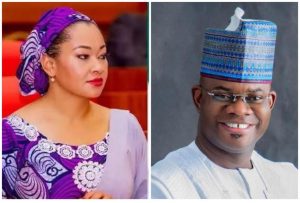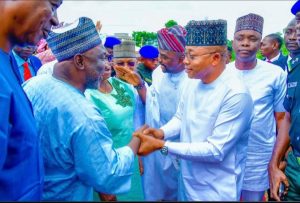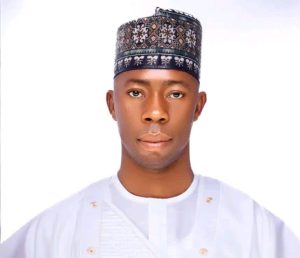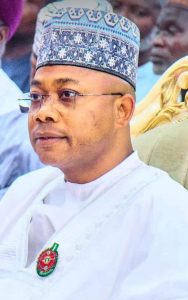Is the Pronounced Influence of Entourages to Blame for the Ineffectiveness of Nigerian Politicians?
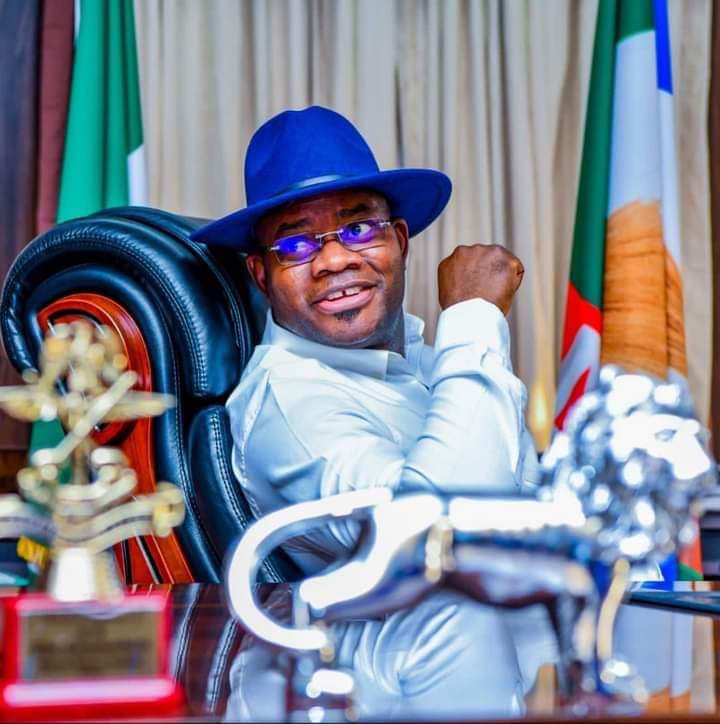
Abdul Mohammed Lawal
The effectiveness of elected public officials often comes under intense scrutiny in the dynamic political sphere of Nigeria . While it is easy to point fingers at the politicians themselves, a critical examination reveals that the people surrounding these officials – their aides, advisers, party loyalists, and other close associates – play a significant role in shaping their performance and effectiveness. This article explores whether the primary cause of the ineffectiveness and non-performing nature of Nigerian politicians lies with their entourages or if these politicians are inherently built to be what they are.
As progressive thinkers and Nigerians, one cannot overlook the substantial influence that an entourage has on an elected official’s ability to perform. In Nigeria, politicians often rely heavily on a close-knit group of individuals who help them navigate the intricate webs of power, policy, and public perception. These individuals are pivotal in providing advice, executing strategies, and maintaining the politician’s image. The tenacious difference maker, His Excellency, Alhaji Yahaya Bello is a standout example of effective leadership influenced by a competent entourage. However, the composition and quality of this entourage can significantly impact the politician’s effectiveness.
Advisers play a crucial role in shaping a politician’s policies and decisions. When these advisers are competent, experienced, and genuinely interested in public service, they can steer the politician towards impactful governance. However, if they are self-serving, inexperienced, or corrupt, they can misguide the politician, leading to poor decision-making and ineffectiveness. The entourage is also responsible for translating political promises into actionable projects. Inefficiency, lack of commitment, or corruption within this group can severely hinder progress and lead to a perception of the politician as non-performing.
In today’s media-driven world, where the thin line between politicking and PR & Marketing has been blurred, public perception is critical. The team responsible for a politician’s image can either build a strong, positive presence or contribute to a negative reputation. Effective communication strategies and transparency can enhance trust and support from the public, while poor public relations can lead to mistrust and criticism, overshadowing any genuine efforts by the politician. This particular reason accounts for the unwarranted comparison between the leadership styles of the two leading Distinguished Senators representing Kogi East and Kogi Central in the 10th National Assembly.
While the entourage plays a significant role, it is also essential to consider the inherent characteristics and intentions of the politicians themselves. A politician with a strong sense of integrity and a clear vision for public service is more likely to strive for effective governance. Such individuals are often driven by a genuine desire to make a positive impact, regardless of the quality of their entourage. These politicians are characterized by their leadership abilities and sound decision-making skills. Those who lack these qualities may struggle to govern effectively, even if surrounded by a competent team. Conversely, strong leaders can often mitigate the negative influence of a poor entourage as depicted by the Kogi experience of 2016 to 2024.
Unfortunately, many politicians view their roles as opportunities for personal gain rather than public service. This self-serving attitude can lead to corruption, nepotism, and a lack of genuine effort to address public concerns, with legislatures at both the national and state levels often falling into this category. The broader political and social environment also shapes a politician’s effectiveness. Factors such as party politics, ethnic and regional considerations, and the level of systemic corruption can either support or hinder a politician’s ability to perform effectively. The Kogi context of this problem is particularly troubling, as politicians seem oblivious to its severity.
Many politicians do not stay close enough to their grassroots to understand their constituents’ needs and aspirations. They base their actions on assumptions and the words of their entourage, who may have interests to protect that do not align with those of the people. These politicians often inherit the enemies of their allies without realizing it, and those who ask critical questions are perceived as troublemakers because the politicians believe they are already doing enough.
Ultimately, the effectiveness of Nigerian politicians is influenced by a combination of their entourages and their inherent characteristics. A competent, well-intentioned politician can still face significant challenges if surrounded by a poor-quality entourage. However, many politicians intentionally select entourages that are not capable of serving them well, as these teams often comprise individuals chosen for loyalty and sycophancy rather than competence. This practice can severely limit the productivity and effectiveness of their administration. Conversely, a well-structured, supportive team can enhance the performance of even a moderately skilled politician.
To address the issue of ineffective governance, it is crucial to focus on both aspects. While politicians cannot be blamed for choosing their teams as a reward for loyalty, improving the quality and integrity of the individuals surrounding them is vital. This can be achieved through better vetting processes, increased accountability, and professional development. Moreover, improving the quality of loyalists chosen isn’t impossible; politicians must be intentional about such changes and stop playing the denial game. At the same time, nurturing a political culture that values integrity, public service, and strong leadership will help produce politicians who are inherently inclined towards effective governance.
The effectiveness of Nigerian politicians is a multifaceted issue that cannot be attributed solely to the individuals themselves or their entourages. Both play significant roles, and their interplay ultimately determines the success or failure of governance. By addressing the quality of entourages and fostering a culture of integrity and commitment among politicians, Nigeria can enhance the performance of its elected officials, leading to more effective governance and better outcomes for the public.


